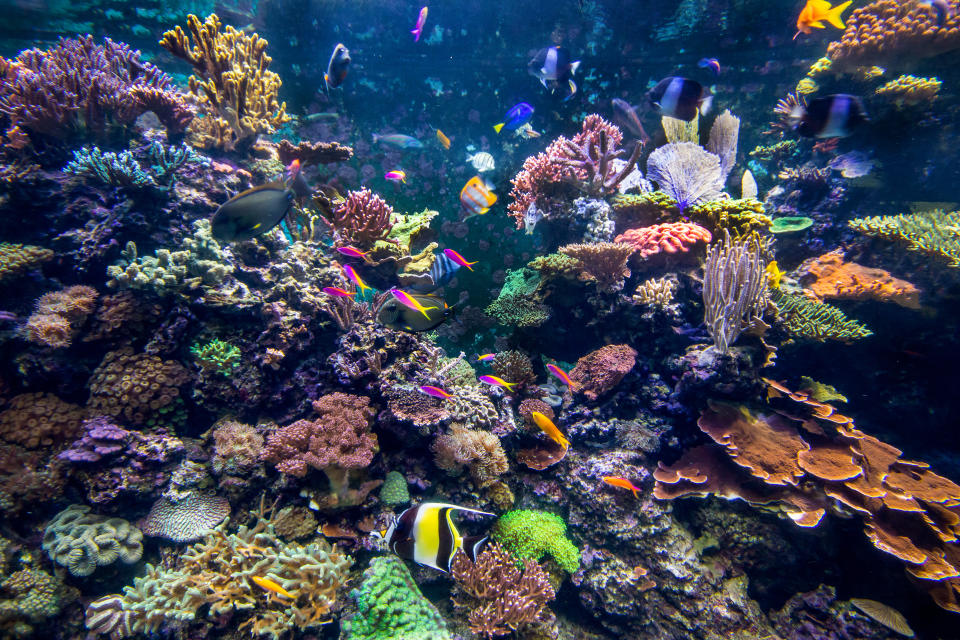Climate change, heatwaves and humans are 'sparking a collapse in reefs and forests'

Tropical forests and coral reefs are experiencing a shocking collapse driven by climate change, human action and extreme weather such as hurricanes, floods and heatwaves.
These areas - among the most biodiverse, with the most animal and plant species - are facing collapse, according to scientists.
A report, led by an international team of experts, mapped over 100 locations where tropical forests and coral reefs have been affected by hurricanes, floods, heatwaves, droughts and fires.
The researchers found that tropical forests and reefs are experiencing ‘knock-on’ effects from extreme weather, which could affect their ability to support life.
READ MORE
Stars ‘need a partner’ to set off universe’s brightest explosions
Meet the adorable cat with two different faces
World’s southernmost reef hit by coral bleaching
Binary Earth-sized planets possible around distant stars
Lead researcher Dr Filipe França, from the Embrapa Amazônia Oriental in Brazil and Lancaster University, said: "Tropical forests and coral reefs are very important for global biodiversity, so it is extremely worrying that they are increasingly affected by both climate disturbances and human activities.
"Many local threats to tropical forests and coral reefs, such as deforestation, overfishing and pollution, reduce the diversity and functioning of these ecosystems.
"This in turn can make them less able to withstand or recover from extreme weather.
"Our research highlights the extent of the damage which is being done to ecosystems and wildlife in the tropics by these interacting threats."
The researchers say that only coordinated international action to stop climate change can address the problem.
Dr Cassandra Benkwitt, a marine ecologist from Lancaster University, said: "Climate change is causing more intense and frequent storms and marine heatwaves.
"For coral reefs, such extreme events reduce live coral cover and cause long-lasting changes to both coral and fish communities, compounding local threats from poor water quality and overfishing.
"Although the long-term trajectory for reefs will depend on how extreme events interact with these local stressors, even relatively pristine reefs are vulnerable to both climate change and extreme weather."
Tropical forest species are also being threatened by the increasing frequency of extreme hurricanes.
The combination of higher temperatures with longer and more severe dry seasons has also caused the unprecedented spread of large-scale wildfires in tropical forests.
Droughts have also impacted the forests' ability to recover from fires.
The authors called for urgent action, and innovative conservation strategies, to help address the slide.
However, the scientists admitted that managing tropical ecosystems at the local level might not be enough if global action wasn't taken, and stressed the need for all nations to act together to preserve tropical ecosystems for future generations.
The research was published in journal Philosophical Transactions of the Royal Society, and was carried out by 11 scientists from eight universities and research institutions across Brazil, the United Kingdom and New Zealand.


